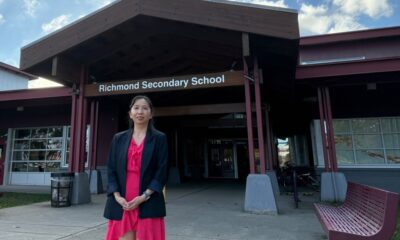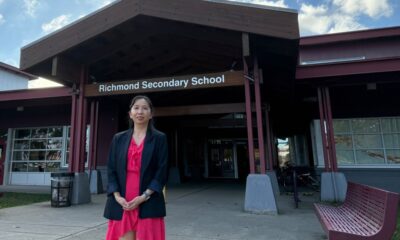Top Stories
UBC Professor Younes Alila Links Floods and Fires to Forest Management

BREAKING: A groundbreaking study led by Younes Alila, a professor at the University of British Columbia (UBC), reveals urgent connections between floods, wildfires, and forest management practices in British Columbia. This critical research, announced earlier today, highlights how improper forest management is exacerbating natural disasters in the region.
New data shows that British Columbia has faced unprecedented challenges in managing its forests, leading to increased flooding and devastating fires. Alila’s work underscores the immediate need for policy changes to mitigate these environmental crises. With climate change intensifying these events, the research points to a dire need for proactive measures.
Alila’s findings indicate that nearly 70% of British Columbia’s forests are at risk due to outdated management practices. This alarming statistic calls for urgent attention from local and provincial authorities to rethink how they approach forest conservation and disaster prevention. The report emphasizes that without immediate intervention, the frequency and severity of these disasters are likely to escalate.
“We cannot afford to wait any longer,” Alila stated in a press conference. “The health of our forests directly impacts the well-being of our communities. We must act now to ensure sustainable management.”
The implications of Alila’s research extend beyond environmental concerns; they touch on the safety and livelihoods of local residents. Communities across British Columbia have experienced firsthand the devastating effects of these disasters, with families losing homes and businesses to wildfires and flooding. As these events become more frequent, the need for a comprehensive strategy to address both forest management and community safety has never been more urgent.
Authorities are now under pressure to respond to Alila’s findings. The British Columbia Ministry of Forests is expected to convene a meeting next week to discuss potential policy adjustments that could incorporate Alila’s recommendations. This could include increased funding for sustainable forestry practices and enhanced disaster response strategies.
Experts in environmental science and disaster management are rallying around Alila’s research, urging immediate legislative action. They argue that integrating scientific findings into policy is crucial for safeguarding both the environment and human life.
As the situation develops, residents and policymakers alike are encouraged to stay informed about the ongoing repercussions of this study. The stakes are high, and the need for action is now.
“This is a wake-up call for everyone involved in forestry and disaster management,” Alila added. “Our forests are not just resources; they are part of our ecosystem and our communities’ future.”
Stay tuned for further updates as this situation evolves and follow local news sources for the latest on how British Columbia plans to address these critical issues.
-

 World3 months ago
World3 months agoScientists Unearth Ancient Antarctic Ice to Unlock Climate Secrets
-

 Entertainment3 months ago
Entertainment3 months agoTrump and McCormick to Announce $70 Billion Energy Investments
-

 Lifestyle3 months ago
Lifestyle3 months agoTransLink Launches Food Truck Program to Boost Revenue in Vancouver
-

 Science3 months ago
Science3 months agoFour Astronauts Return to Earth After International Space Station Mission
-

 Technology2 months ago
Technology2 months agoApple Notes Enhances Functionality with Markdown Support in macOS 26
-

 Top Stories2 weeks ago
Top Stories2 weeks agoUrgent Update: Fatal Crash on Highway 99 Claims Life of Pitt Meadows Man
-

 Sports3 months ago
Sports3 months agoSearch Underway for Missing Hunter Amid Hokkaido Bear Emergency
-

 Politics3 months ago
Politics3 months agoUkrainian Tennis Star Elina Svitolina Faces Death Threats Online
-

 Technology3 months ago
Technology3 months agoFrosthaven Launches Early Access on July 31, 2025
-

 Politics3 months ago
Politics3 months agoCarney Engages First Nations Leaders at Development Law Summit
-

 Entertainment3 months ago
Entertainment3 months agoCalgary Theatre Troupe Revives Magic at Winnipeg Fringe Festival
-

 Politics2 weeks ago
Politics2 weeks agoShutdown Reflects Democratic Struggles Amid Economic Concerns





















